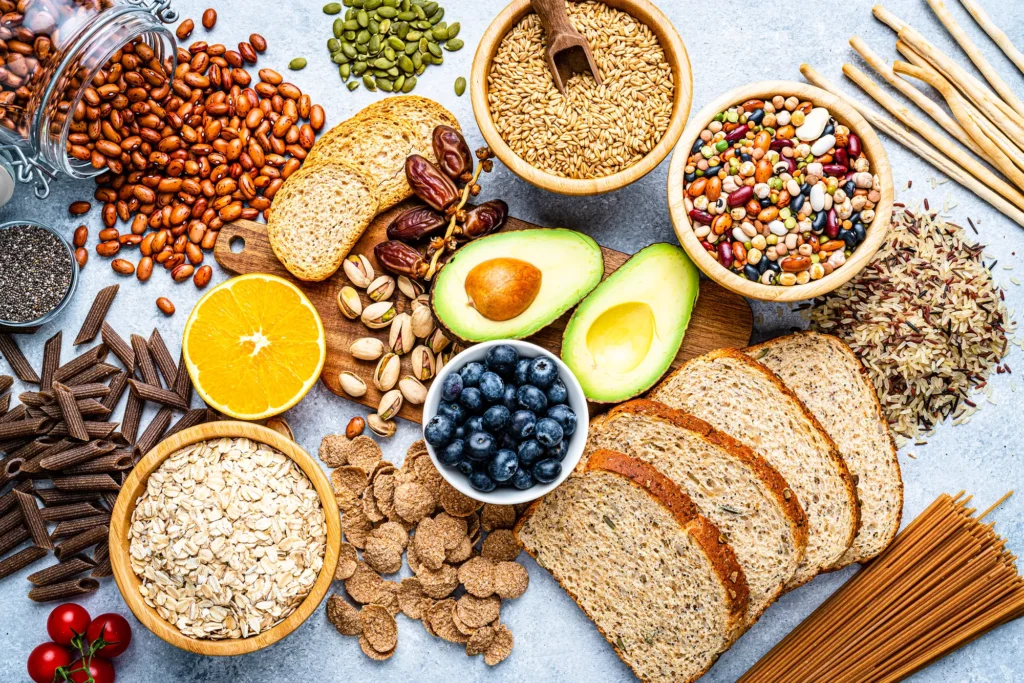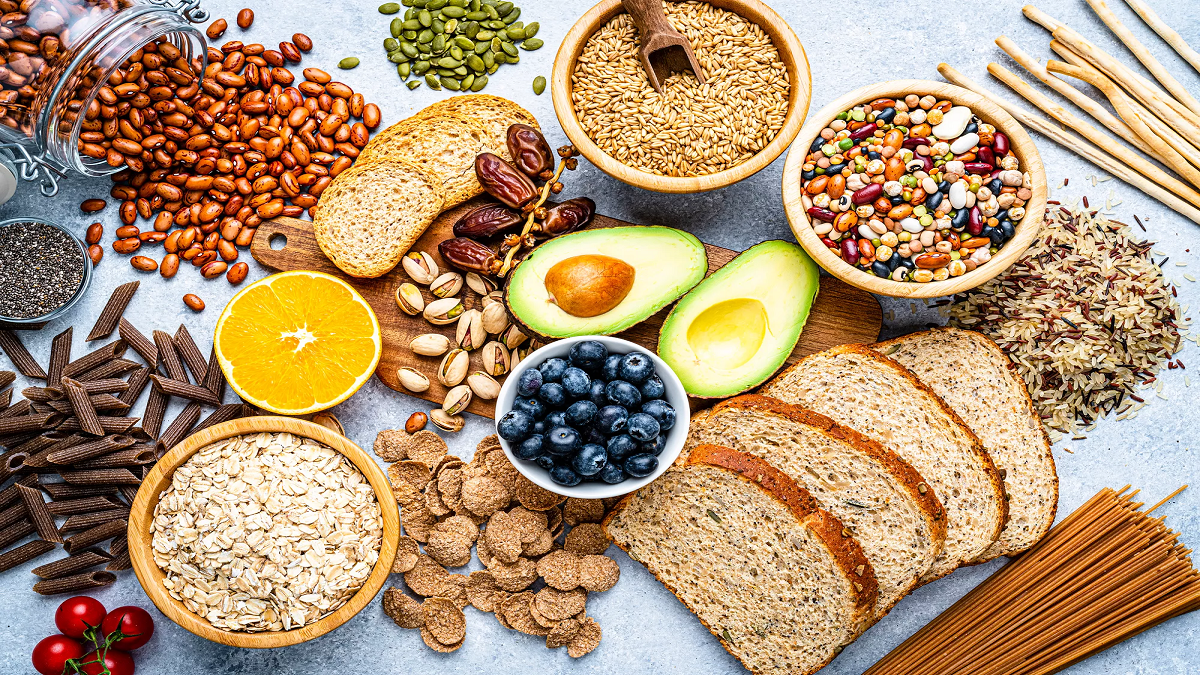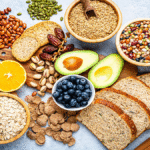When we are tired, we often grab a cuppa tea or coffee. Some go for energy drinks. While our jobs, businesses, or personal lives demand the last ounce of our energy, excess caffeine or tannin can bring adverse effects. We can resort to healthy foods to fight fatigue.
Millions of people worldwide suffer from fatigue, which lowers their productivity and quality of life. The meals we consume have a fundamental impact on our energy levels throughout the day, even if there are several elements that contribute to fatigue. A healthy diet may naturally increase energy and fight weariness.
Best Foods To Fight Fatigue

1. Leafy Vegetables
Spinach, kale, and Swiss chard are leafy greens that are full of nutrients and are healthy foods to fight fatigue. Iron is a mineral essential for producing hemoglobin, which transports oxygen in the blood. These veggies are quite rich in iron.
Anemia, which is a frequent cause of fatigue and weakness, may happen when you don’t have enough iron. You may keep your energy levels stable and avoid iron shortage by eating leafy greens. These greens are also high in magnesium, which helps muscles work and produces energy. They are also great providers of folate, which helps make red blood cells and clears the mind.
Leafy greens are a good source of vitamins A, C, and K, which help keep your immune system healthy, repair cells, and make bones stronger. All of these things help keep your body active and healthy. Eating leafy greens regularly may, thus, greatly improve long-term health and energy levels.
2. Fatty Fish
Omega-3 fatty acids, which are vital for preserving general health and overcoming weariness, are abundant in fatty fish like mackerel, salmon, and tuna. Because of their potent anti-inflammatory qualities, these good fats may aid in the reduction of chronic inflammation, which is often connected to chronic fatigue and low energy.
Omega-3s promote better metabolic function and a stronger immune system by reducing inflammation, which may increase stamina. Omega-3 fatty acids are recognized to be essential for brain function in addition to their positive effects on bodily health.
By promoting the synthesis of neurotransmitters like serotonin and dopamine, they enhance mental clarity, promote cognitive function, and assist in mood regulation. Therefore, eating fish high in omega-3 fatty acids may help lower mental exhaustion and sadness, two conditions that deplete energy. Regular consumption of fatty fish may therefore increase your physical and mental energy levels and enhance your overall health.
3. Whole Grains
Whole grains such as brown rice, quinoa, and oats are wonderful healthy foods to beat fatigue. Unlike processed grains, which may induce fast spikes and falls in blood sugar, whole grains are rich in complex carbs and dietary fiber that give a sustained, constant release of energy.
This helps maintain constant blood sugar levels, avoiding tiredness and improving endurance. In addition to providing a solid energy source, whole grains are filled with critical nutrients, including B vitamins like B1 (thiamine), B2 (riboflavin), B3 (niacin), and B6 (pyridoxine).
These vitamins play a critical part in the body’s capacity to transform the food we ingest into useful energy, supporting metabolism and cellular function. Whole grains also include iron, magnesium, and antioxidants that help with general health and well-being. Incorporating a variety of whole grains into your daily meals will help increase energy levels, sharpen attention, and promote a balanced, nutrient-rich diet.
4. Bananas
Bananas are a terrific snack choice for increasing energy due to their rich vitamin profile. They are abundant in potassium, a mineral that helps maintain adequate fluid balance and promotes muscular function, which is vital for minimizing cramps and weariness during physical exercise.
The natural carbohydrates included in bananas, largely in the form of sugars and fiber, give a rapid but steady energy release. This makes them a perfect snack for keeping energy levels constant throughout the day. In addition to potassium and carbs, bananas are a fantastic source of vitamin B6, a key ingredient that helps the metabolism of proteins and carbohydrates.
Vitamin B6 also plays a role in the creation of neurotransmitters like serotonin and dopamine, which govern mood and mental acuity. By helping to turn food into energy and boosting brain function, bananas serve as an invigorating and nutrient-packed snack that may keep you feeling active and alert for extended times.
5. Nuts and Seeds
Nuts and seeds, like walnuts, almonds, and chia seeds, are filled with a range of nutrients that make them ideal healthy foods to fight fatigue. These tiny but nutrient-dense meals contain a balanced blend of fiber, protein, and healthy fats, which work together to deliver long-lasting energy.
The fiber helps to delay the digestion of carbs, minimizing blood sugar spikes and crashes that may contribute to exhaustion. The protein content aids muscle repair and development, while the beneficial fats, such as omega-3 fatty acids in walnuts and chia seeds, contribute to prolonged energy and increased cognitive function.
In addition to these macronutrients, nuts and seeds are a rich supply of magnesium, a mineral that is necessary for the generation of energy inside cells. Magnesium helps activate enzymes involved in energy generation and promotes muscle and nerve function, making these foods a crucial element of any diet focused on sustaining high energy levels.
6. Berries
Berries such as strawberries, raspberries, and blueberries are not only tasty but also filled with potent nutrients that may help increase your energy levels. These fruits are rich in antioxidants, which help counteract oxidative stress and decrease inflammation in the body, both of which may contribute to feelings of exhaustion.
The natural sugars in berries provide a rapid source of energy without generating the blood sugar spikes and crashes frequently associated with manufactured sweets. Moreover, berries are a good source of vitamin C, an essential mineral that plays a significant role in boosting the immune system.
Vitamin C helps to defend against infections, enhance skin health, and decrease inflammation, all of which may help prevent weariness. By boosting the immune system and fostering general well-being, berries help avoid energy-draining diseases and enhance your body’s capacity to remain active and energetic throughout the day. Eating a variety of berries daily helps keep you feeling refreshed and invigorated.
Read More: 9 Healthy Superfoods To Eat Every Day
7. Yogurt
Yogurt is among the wonderfully healthy foods to beat fatigue, which plays a critical role in maintaining constant energy levels throughout the day. Protein helps delay the digestion of carbs, allowing for a progressive release of energy that keeps you feeling full and active for longer times. In addition to its protein content, yogurt is rich in probiotics—beneficial microorganisms that promote intestinal health.
A healthy digestive system is intimately related to general well-being, as it enhances nutrition absorption, strengthens the immune system, and may even impact mood and mental clarity. Since the stomach is frequently referred to as the “second brain,” maintaining its health may have a favorable influence on energy levels and emotional well-being.
Yogurt also delivers critical vitamins and minerals, including calcium, B vitamins, and potassium, which help muscular function, metabolism, and hydration. Including yogurt in your diet may assist in nourishing your body and encourage long-lasting physical and mental vigor.
8. Dark Chocolate
Dark chocolate may deliver a small but effective energy boost due to its natural caffeine level and a chemical called theobromine, which stimulates the central nervous system. These medications may help boost alertness, improve attention, and minimize sensations of exhaustion.
In addition to caffeine, dark chocolate is rich in antioxidants, notably flavonoids, which promote healthy blood flow and decrease inflammation, leading to enhanced brain function and general vigor. The enhanced circulation may help transfer oxygen and nutrients more effectively throughout the body, thus improving energy levels.
However, although dark chocolate has various health advantages, it should be used in moderation. Many commercial kinds include extra sugars and fats, making them heavy in calories. Overconsumption might lead to energy crashes or weight gain, which counteracts its advantages.
Choosing high-quality dark chocolate with at least 70% cocoa content will help you enjoy its stimulating benefits while reducing needless sugar consumption and optimizing nutritious value.
9. Eggs
Eggs are a powerhouse of nutrition and serve as a complete source of high-quality protein, meaning they contain all essential amino acids that the body needs for muscle maintenance, repair, and overall energy production. This makes them an excellent food choice for sustained energy throughout the day.
In addition to protein, eggs are rich in essential vitamins and minerals that are directly involved in energy metabolism. They are a good source of iron, which helps carry oxygen through the blood to the muscles and brain, reducing the risk of fatigue and enhancing endurance. Eggs also contain vitamin D, which supports immune health, bone strength, and energy balance, especially in individuals with deficiencies.
Furthermore, they are high in B vitamins, particularly B12 and riboflavin, which help convert the food we eat into energy the body can use efficiently. Easy to prepare and versatile, eggs can be a nourishing part of any balanced, energy-supporting diet.
Summing Up
It is hard to exaggerate the value of an appropriate diet in avoiding and treating tiredness. The healthy foods to fight fatigue act as the fuel for every system in your body, and picking the appropriate nutrients may substantially improve your energy levels.
By including these nutrient-dense foods in your daily diet—leafy greens, fatty fish, whole grains, bananas, nuts and seeds, berries, yogurt, dark chocolate, and eggs—you are taking a strong step toward naturally improving your vitality.
Each of these meals is rich with critical vitamins, minerals, antioxidants, and other elements that directly support the body’s energy generation processes and contribute to general health. However, addressing tiredness properly demands a comprehensive strategy. Nutrition is simply one element of the problem.
To feel refreshed and keep that energy throughout the day, it is vital to match a nutritious diet with other beneficial behaviors. Regular physical exercise promotes circulation and stamina, water helps metabolic processes, and excellent sleep enables your body to heal and replenish. When combined, these lifestyle behaviors offer a solid basis for prolonged energy and well-being.
Making tiny, conscious adjustments to your daily routine—starting with the meals you eat—can offer significant benefits in how you feel and operate. Rather than depending on caffeine or fast cures, concentrate on long-term solutions that fuel your body. Over time, these conscious decisions may help you overcome exhaustion, boost productivity, and lead a more active, meaningful life full of energy and purpose.
FAQ
Q: Which meals are beneficial for severe exhaustion?
A: The consequences of fatigue may be mitigated by eating a diet rich in fruits, whole grains, leafy green vegetables, and healthy fats from foods like nuts, seeds, and seafood. You may discover how to include items that can help combat tiredness in your diet by using this brochure and the study dietician.
Q: Does protein aid in reducing fatigue?
A: Proteins take even longer to digest than complex carbohydrates, which might make them useful in the battle against weariness.
Q: Do you feel exhausted when you don’t eat?
A: Feeling exhausted all the time is one of the most evident and common signs that someone may be undereating. A person’s body uses the calories in their meals and beverages as fuel. For the body to function correctly, it needs a certain number of energy calories.











